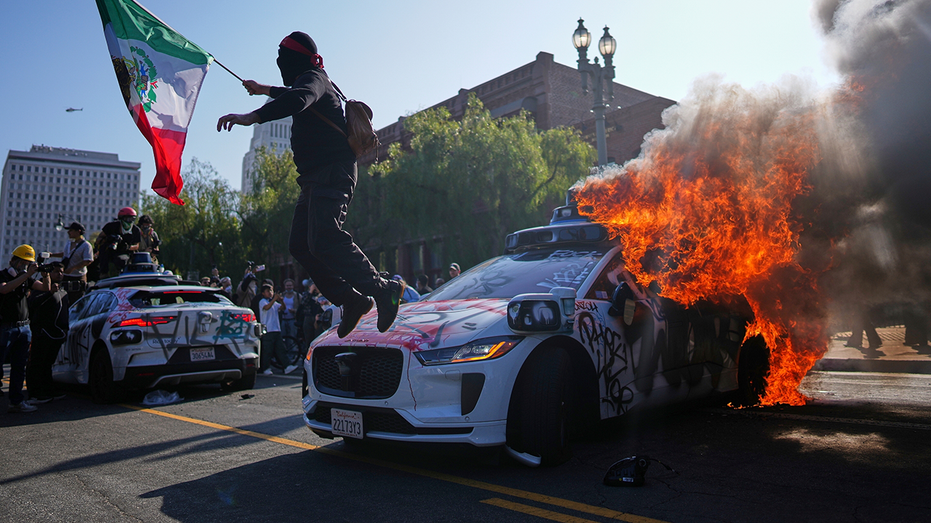DHS Blasts Democrats for 'Beyond the Pale' Rhetoric Amid Surge of Violent Threats Against ICE Agents
Homeland Security condemns attacks on ICE agents, criticizes Democratic leaders for alleged "vilification."

The Department of Homeland Security (DHS) has intensified its calls for Democratic leaders to moderate their rhetoric toward Immigration and Customs Enforcement (ICE) agents, as violent demonstrations continued in Los Angeles through Sunday night. DHS officials warn that escalating hostility is directly contributing to threats of violence and doxxing against federal law enforcement officers.
Tensions remain high across California and several other states where ICE operations have drawn fierce opposition from local officials and activists. The unrest in Los Angeles follows a series of statements from prominent Democratic figures—including House Minority Leader Hakeem Jeffries, Boston Mayor Michelle Wu, Minnesota Governor Tim Walz, and California leaders—criticizing ICE’s practices and, in some cases, drawing controversial historical parallels. Officials at DHS argue that this persistent criticism is fueling dangerous conditions for agents in the field.
Assistant Secretary Tricia McLaughlin condemned what she described as “lawless rioters” in Los Angeles and placed blame on local leaders for failing to restore order. “The men and women of ICE put their lives on the line to protect and defend the lives of American citizens,” McLaughlin stated, demanding that Mayor Karen Bass and Governor Gavin Newsom publicly call for an end to the violence. DHS reports a staggering 413% increase in assaults against ICE agents—a dramatic spike that has coincided with the latest wave of anti-ICE protests in the city.
Fueling the controversy are remarks made by officials like Rep. Jeffries and Mayor Wu regarding the use of masks by ICE agents during enforcement sweeps. The policymakers criticized the tactic, framing it as a lack of transparency and drawing comparisons to authoritarian regimes. Jeffries went so far as to suggest that each masked ICE agent would eventually be identified, claiming, “This is America. This is not the Soviet Union… every single one of them, no matter what it takes, no matter how long it takes, will of course be identified.”
Mayor Wu drew further scrutiny by likening the practice to groups such as Nationalist Social Club-131, a neo-Nazi organization, a comparison that DHS officials called “sickening.” As the debate grew more heated, Minnesota Governor Tim Walz added fuel to the fire during a university commencement speech, characterizing ICE as “Donald Trump’s modern-day Gestapo” and accusing agents of detaining people in unmarked vans and whisking them away without due process.
As violence intensified outside ICE facilities, President Donald Trump responded by ordering National Guard deployments throughout California—a move Governor Newsom has vowed to challenge legally. While Newsom accused the administration of seeking to “manufacture chaos and violence,” he also warned that individuals who engage in criminal acts during the riots would face prosecution, emphasizing that such actions ultimately serve the administration’s political interests.
Despite calls for de-escalation from both state and city leaders, including a message from Mayor Bass urging Angelenos not to “engage in violence and chaos,” critics charged that earlier statements from local officials only served to inflame passions. DHS insists that the ongoing vilification of ICE by politicians at all levels must stop if the cycle of violence and retaliation is to be broken.
While Governor Newsom has pointed to cooperation with certain ICE detainers involving individuals already incarcerated, the broader debate over immigration enforcement tactics and federal-local relations appears far from resolved. The situation remains fluid, with federal authorities emphasizing the need for constructive discourse rather than incendiary language as the best path toward public safety and the protection of law enforcement personnel.




